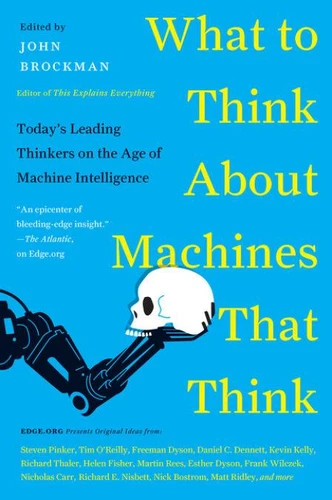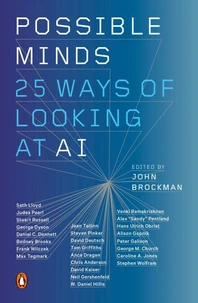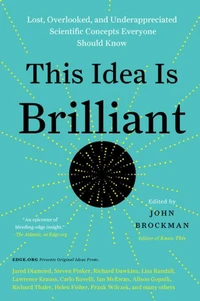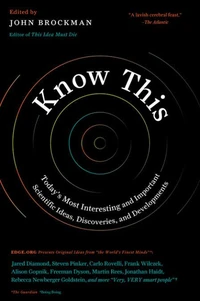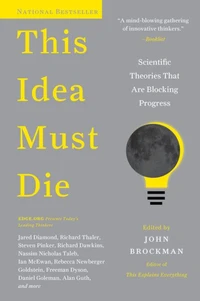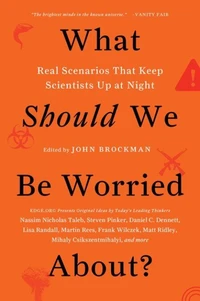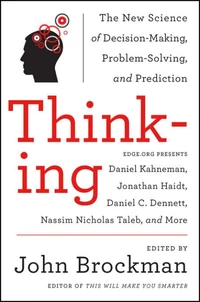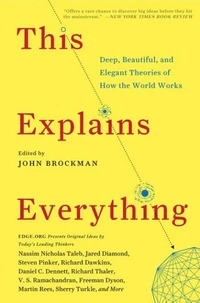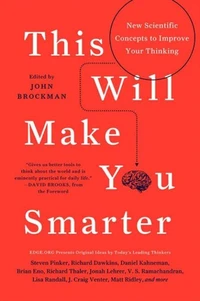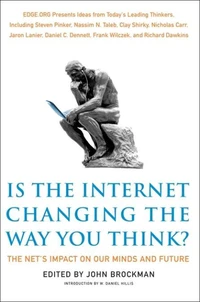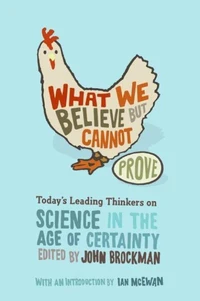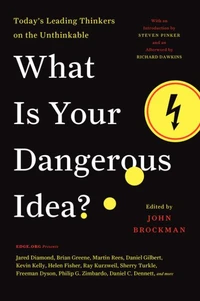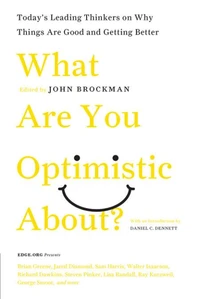What to Think About Machines That Think. Today's Leading Thinkers on the Age of Machine Intelligence
Par :Formats :
Disponible dans votre compte client Decitre ou Furet du Nord dès validation de votre commande. Le format ePub protégé est :
- Compatible avec une lecture sur My Vivlio (smartphone, tablette, ordinateur)
- Compatible avec une lecture sur liseuses Vivlio
- Pour les liseuses autres que Vivlio, vous devez utiliser le logiciel Adobe Digital Edition. Non compatible avec la lecture sur les liseuses Kindle, Remarkable et Sony
- Non compatible avec un achat hors France métropolitaine
 , qui est-ce ?
, qui est-ce ?Notre partenaire de plateforme de lecture numérique où vous retrouverez l'ensemble de vos ebooks gratuitement
Pour en savoir plus sur nos ebooks, consultez notre aide en ligne ici
- Nombre de pages528
- FormatePub
- ISBN978-0-06-242566-9
- EAN9780062425669
- Date de parution06/10/2015
- Protection num.Adobe DRM
- Infos supplémentairesepub
- ÉditeurHarper Perennial
Résumé
Weighing in from the cutting-edge frontiers of science, today's most forward-thinking minds explore the rise of "machines that think."Stephen Hawking recently made headlines by noting, "The development of full artificial intelligence could spell the end of the human race." Others, conversely, have trumpeted a new age of "superintelligence" in which smart devices will exponentially extend human capacities.
No longer just a matter of science-fiction fantasy (2001, Blade Runner, The Terminator, Her, etc.), it is time to seriously consider the reality of intelligent technology, many forms of which are already being integrated into our daily lives. In that spirit, John Brockman, publisher of Edge. org ("the world's smartest website" - The Guardian), asked the world's most influential scientists, philosophers, and artists one of today's most consequential questions: What do you think about machines that think?
No longer just a matter of science-fiction fantasy (2001, Blade Runner, The Terminator, Her, etc.), it is time to seriously consider the reality of intelligent technology, many forms of which are already being integrated into our daily lives. In that spirit, John Brockman, publisher of Edge. org ("the world's smartest website" - The Guardian), asked the world's most influential scientists, philosophers, and artists one of today's most consequential questions: What do you think about machines that think?
Weighing in from the cutting-edge frontiers of science, today's most forward-thinking minds explore the rise of "machines that think."Stephen Hawking recently made headlines by noting, "The development of full artificial intelligence could spell the end of the human race." Others, conversely, have trumpeted a new age of "superintelligence" in which smart devices will exponentially extend human capacities.
No longer just a matter of science-fiction fantasy (2001, Blade Runner, The Terminator, Her, etc.), it is time to seriously consider the reality of intelligent technology, many forms of which are already being integrated into our daily lives. In that spirit, John Brockman, publisher of Edge. org ("the world's smartest website" - The Guardian), asked the world's most influential scientists, philosophers, and artists one of today's most consequential questions: What do you think about machines that think?
No longer just a matter of science-fiction fantasy (2001, Blade Runner, The Terminator, Her, etc.), it is time to seriously consider the reality of intelligent technology, many forms of which are already being integrated into our daily lives. In that spirit, John Brockman, publisher of Edge. org ("the world's smartest website" - The Guardian), asked the world's most influential scientists, philosophers, and artists one of today's most consequential questions: What do you think about machines that think?

